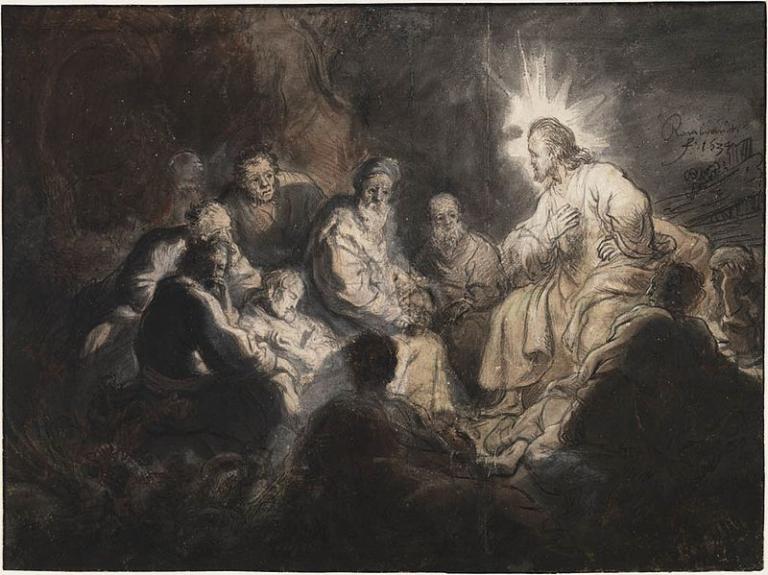
(Wikimedia Commons public domain photograph)

(Wikimedia Commons public domain photograph)
“Many went out of the country up to Jerusalem.”
I published a column in the Deseret News back on 30 April 2015 — four years ago to the day — about the seemingly mundane but quite important concept of “going up” to Jerusalem:
https://www.deseretnews.com/article/865627563/Going-up-to-Jerusalem.html
Also: Jesus knows what’s coming, but he intends to keep control of his timing.

Wikimedia Commons public domain image
Luke’s comment, that the apostles “understood none of these things; this saying was hid from them, and they did not grasp what was said,” is puzzling.
Jesus’ statement seems perfectly clear, entirely straightforward. There’s nothing in it that’s difficult to grasp, conceptually. It’s not Hegel or Kant.
So what does it mean that they didn’t understand or grasp what Jesus was saying?
I suppose that one possibility is simply this: He was so dominant, his personality so alive, his leadership so absolute, and his power so manifest, that they just couldn’t comprehend that he would die, let alone that he would be seized by others and forcefully put to death. They were probably still thinking of him as the Messiah in the (more or less) standard Jewish way: He would, pretty soon, triumph over his enemies, drive the Romans out, and establish the earthly Kingdom of Heaven. They didn’t fully grasp, maybe didn’t really grasp at all, the fact that his Messiahship would be enacted through suffering and death.

(Wikimedia Commons public domain image)
The apostles were totally caught up in the mesmerizing, charismatic leadership of Jesus. They probably found the idea of his absence unthinkable, the possibility of his “defeat” at the hands of his enemies inconceivable.
The Messiah was here.
The Messianic age was about to dawn.
Moreover, while devout Jews anticipated a physical resurrection, they expected it to occur at the end of time, in connection with the Last Judgment, not as an individual case long before the End.
It just didn’t “compute.”
Sometimes, when we have really strong expectations and settled ideas, we can’t at first hear other ideas that directly contract our preconceptions. Even if we hear them.












